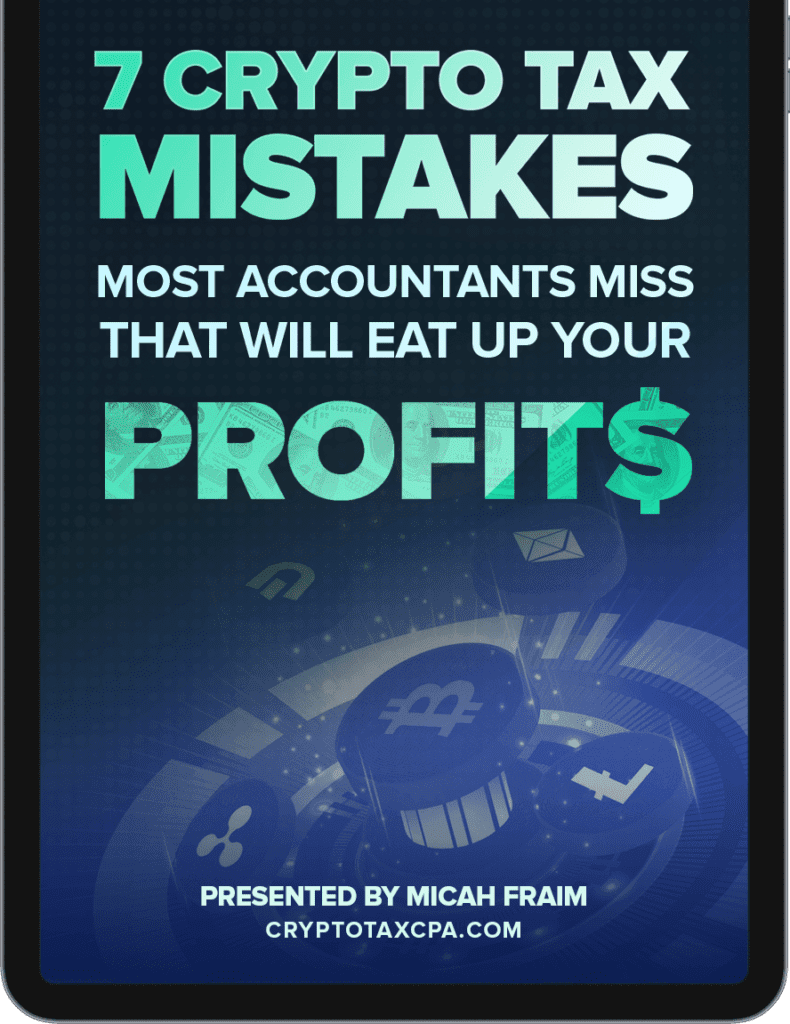Rewards from blockchain games are likely taxable – either as hobby income or as business income.
Making Money Just by Gaming
We’re going to take a break from talking about NFT taxes to discuss P2E (play-to-earn) gaming, since some of the ideas we discuss here will help set a foundation for our discussion on taxation in the metaverse.
Play-to-earn gaming is the concept that really got me into cryptocurrency. As a kid I probably played thousands of hours of video games over the years. And I was especially hooked on games that had some sort of character progression – either by leveling up or by accumulating money/assets – even though those assets had no real-world value.
If there had been an option to play a game that allowed you to earn real-world money – even fairly de minimis amounts – it would have been game over. That would have been the only game I ever played.
Twenty years ago, that was not an option. But it is today. And it is going to be an absolute game changer.
But with that, there are going to come some tax issues that people are not anticipating. We’re going to have gamer kids with six and seven figure incomes because of dungeon raids or their successful blacksmithing shops. Which is some mix of hilarious, inspiring, and terrifying all at once.
And unfortunately, all of that income is taxable. But how is it taxed?
Gaming as a Hobby or a Business?
The first question we have to answer is if the activity is a hobby or a business. The IRS provides nine initial parameters for taxpayers to consider when determining what an activity is:
- “Whether the activity is carried out in a businesslike manner and the taxpayer maintains complete and accurate books and records.
- Whether the time and effort the taxpayer puts into the activity show they intend to make it profitable.
- Whether they depend on income from the activity for their livelihood.
- Whether any losses are due to circumstances beyond the taxpayer’s control or are normal for the startup phase of their type of business.
- Whether they change methods of operation to improve profitability.
- Whether the taxpayer and their advisors have the knowledge needed to carry out the activity as a successful business.
- Whether the taxpayer was successful in making a profit in similar activities in the past.
- Whether the activity makes a profit in some years and how much profit it makes.
- Whether the taxpayers can expect to make a future profit from the appreciation of the assets used in the activity.”
Especially since it is a game being played, the first instinct is to call the video game a hobby. But just because the activity revolves around a game does not mean it is not a business. Think about traditional sports leagues, esports athletes, Twitch streamers/creators whose content is centered around video games, and even gold farmers performing mundane tasks in MMORPGs.
Are we really going to claim that any of those activities are not businesses?
Hobby Income Benefits and Drawbacks
For many P2E gamers, their income will be hobby income. They earn a little bit of money in the game, stick it on their tax return (if they’re even required to file a tax return), and that’s the end of it.
And there’s good and bad to something being hobby income.
The good is that it’s simple and is not subject to self-employment tax.
The bad is that after the TJCA passed in 2018 you can no longer deduct ANY hobby expenses. Previously you had been able to deduct your hobby expenses (up to the amount of hobby income) as an itemized deduction subject to a threshold of 2% of your AGI.
So now, every bit of hobby income you generate is taxable, regardless of whether or not you have expenses. That’s fine if you earned a couple hundred dollars, but is much more painful if your in-game activities become more involved. And as it becomes more involved, the more likely the activity is to be a business and the more beneficial it is to the taxpayer to classify it as a business.
To illustrate, let’s use the two examples above as a starting point.
A kid raids dungeons for a few hours every weekend in his spare time. He ends up getting a pretty rare (and valuable) drop that he then sells.
That’s pretty clearly hobby income. He does this purely for his own enjoyment and the drop is an unexpected bonus, spends very little time doing this, does not rely on that income to survive, is unlikely to maintain any records surrounding the activity, etc.
That kid has to claim the dungeon drop as taxable income on his tax return (assuming he has enough income to require him to file one) and is not able to write off any in-game expenses to offset against it.
Business Income Benefits and Drawbacks
On the flip side, let’s say there’s a 50-year-old single father of five who has a blacksmithing shop in an MMORPG. He spends at least 40 hours a week grinding out weapons and armor to sell to other players.
Even though that activity is happening in-game, it is much more likely to be business income. The time commitment is much more substantial, he relies on the income to support his family, creating the weapons requires substantial investment in terms of raw materials and equipment, he is tracking all of his activity very closely to improve profitability, and this is a fairly mundane activity that he is only doing because it generates income.
The income is subject to self-employment tax, which is on the surface a negative. But since it is business income, the 50-year-old is able to write off his corresponding in-game expenses to offset against his revenue. Especially as the activity scales, that can be a huge benefit and possibly have the activity taxed more favorably than if it were counted as hobby income. It also may benefit him to have the activity run through an entity and taxed as an S-Corp.
Like with any hobby vs. business discussion, the scope, scale, intent, and other factors related to the activity will come into play. Make sure you are planning carefully with your CPA throughout the year. The bucket your gaming falls into – along with other factors related to how you operate your in-game hobby/business – can drastically affect your tax bill at the end of the year.
Any accounting, business, or tax advice contained in this communication, including attachments and enclosures, is not intended as a thorough, in-depth analysis of specific issues, nor a substitute for a formal opinion, nor is it sufficient to avoid tax-related penalties.


